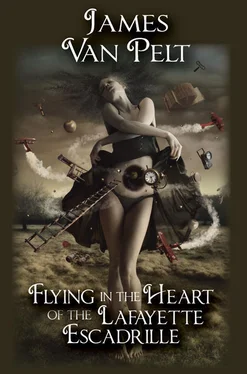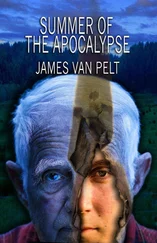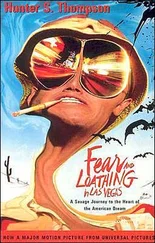A rk Ascension orbited hundreds of miles above the mutagen infested Earth. Rotation created a one-grav interior in the seven- mile long, seven-mile diameter tube where genetically uncorrupted animals roamed forty-nine square miles of sculpted, planted and artificially lit landscape.
Martin tended the sun.
During the day he plotted ionization graphs, watched for ultraviolet and infrared variances, checked thermal output against projected goals and wrote a report about the largely automated processes. He checked the news one more time. The wolf had not whelped.
At dusk he left his east-end office where stars slowly revolved in one window and seven miles of bluffs, hills and trees stood in the other. Pine smells and wet leaves met him. Gravelly dirt crunched beneath his shoes. The door’s seams vanished into the wall. He took a deep breath and shivered.
The plasma sun dimmed in the west: an Ascension sunset. The sun didn’t disappear below a horizon, but reached the end of its seven-mile trek, then faded as the gasses cooled. A mile above Martin, a hazy moon flickered on to start its night long trip to the western end. He rubbed his upper arms, wishing he’d worn a coat.
He checked his wrist monitor linked to the plasma track and nodded. The moon produced no heat, but it lighted the interior that otherwise would be black as a cave, without a single star to break the inky tapestry.
To the north, a wolf howled. Martin tried to spot it. He wondered if it was the pregnant wolf’s mate. The land sloped up both left and right, but the trees slanted with the slope until they appeared to be horizontal spikes poking from distant cliffs. Then the cliffs continued in a great arc, completing the world’s roof above him. Beyond the moon in the clear evening air, he thought he saw movement. Deer, maybe, or elk; there was a small herd of each, but at this distance it was unlikely. Probably shifting shadows. Not the animals. He seldom saw them, although nearly a thousand roamed the artificial environment. A dozen biologists observed them, of course, and geneticists tested for mutagens, ever vigilant for contagion. Martin didn’t see the scientists much. Their haunted faces and creepy depression bothered him. They acted like the Earth had died. “Catastrophic species shift” they called it. Nothing remained the same, except here in Ark Ascension and the four other Arks just like it.
Martin avoided the crew, fifteen couples, twenty-three unmarried adults and thirteen children. He spent his time at the zero-G axis, fine tuning the sun, tweaking magnetic containments, experimenting with plasma physics.
Sunset and moonrise brought him to the surface. A zoologist, Dr. Kette, the only single parent on board, and her daughter, Robyn, used this observation area too. The door’s mechanical whisper behind told him they were there.
“It’s cold, Mom,” said Robyn, an eight-year-old whose rounded cheeks, dark eyes and a serious expression mirrored her mother.
“Winter time, dear. The animals and plants need the seasons to stay healthy.”
Robyn leaned against her mother’s leg. “It makes me sad. The trees are bare.”
“Not the evergreens.”
The sun’s dull remnant winked out. Only the moon cast light, a cool, silvered sheen that shimmered the grass. Martin took a few steps away from the wall. If he didn’t look up, the illusion nearly fooled him, a full moon on foothills. In the hollows, fog eddied and the temperature dropped. Frost would soon coat rock and branch, bush and earth.
“Can’t you make the sun warmer, Martin?” said Robyn. “Can’t we always have summer?”
Surprised that she’d spoken to him—generally their evening pilgrimages were silent—he said, “Most of the heat comes from the ground…”
“As I’ve explained,” said Dr. Kette. She sounded sad too. Martin knew that like the other women she wanted to have more children, but the mutagen hadn’t been identified. No one knew if her babies would be born human. She didn’t know if she’d been isolated in time.
“There’s no snow,” said Robyn. “How can we have winter without snow?”
“We’re in a spacecraft. It can’t snow here. We’ll still have Christmas though. We’ll decorate the apartment.” Dr. Kette didn’t sound convinced. “We don’t need snow for Christmas.”
Robyn stamped her foot. It was half-hearted. Martin knew she couldn’t really throw a tantrum. She was too nice a child for that.
“We can’t even put up colored lights! Four days until Christmas! No snow and no lights.” Robyn’s tears were real.
Dr. Kette sat on the ground beside her. “I miss them too.”
Embarrassed, Martin moved farther away. He’d never had a family. Too much lab time. But the image of Robyn leaning against her mother affected him. He wanted to hold her too, to tell her it would be all right. Dr. Kette cried also. Mother and child displaced, no different from the animals wandering beyond.
After a bit, Martin approached, touched Dr. Kette on the shoulder. “You guys will freeze if you stay out here.”
The woman looked up at him. “We really are a long, long way from home.”
Martin couldn’t do anything about snow. At 5,800 feet to the Ark’s center, there wasn’t air enough for clouds. Winter ground fog was common though. In the fall and spring, when the transition between the day’s heat, the night’s temperature drop and the humidity was just right, it drizzled for a few minutes in the morning, but no snow. He thought about Robyn crying.
A crew meeting the next morning discussed the upcoming holiday. A party was proposed. Debate followed, a dispirited affair. The head of research argued, “Even if we are in exile, we can celebrate—we need a celebration.”
“What is there to be joyful about?” countered Dr. Roam, the head of the medical unit, his lab coat meticulously pressed, his hair combed straight back and tight against his head, like a helmet. “It’s ghoulish for us to be merry while our families on Earth suffer.”
Martin sat in the back of the conference room. He thought about the deterioration of the news. Before they’d left, the worst of the mutagen births clustered in pockets. California suffered, as did Canada’s western coast and Alaska. Martin had heard stories of monstrous polar bear cubs, mewling in the snow, hairless, deformed, abandoned by their mothers. The Midwest and the East were untouched. So the pattern continued the world over: some areas hit hard, others were not. The mutagen spread slowly; it had taken twenty years to get this far. For twelve years the Arks were built, and then, a year ago January, populated with animals from the untouched areas. The crew came from areas with no unnatural births.
As if waiting for the occupation of the Arks as a signal, the mutagen’s progress accelerated. No place was free of it. From the Ark they watched the fear rise. It built. Cities burned, and there were no uncorrupted births. Fish or fowl, beast or man, the babies were not right. Most died, but more horribly, some lived. The crew could hardly bear to look at the pictures.
Against the back wall, the children sat. Maybe they are the last young ones we’ll see, thought Martin. Maybe they’re the end.
Someone else said, “The animals are sterile. Even the rabbits have had no litters. Not even lab mice. We haven’t saved anything by coming here. We should be in fully equipped laboratories searching for a cure. Running away solved nothing.”
People muttered to each other, while the Captain waited for someone to raise their hand.
Dr. Kette said, “We expected most animals would lose a breeding season. That’s a well documented effect of dislocation. It’s too soon to tell, and there is the wolf. She should deliver soon.”
Читать дальше










